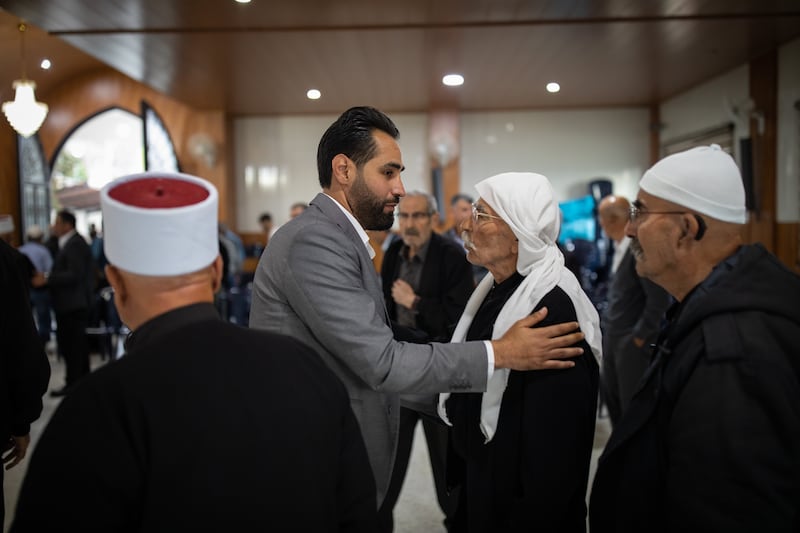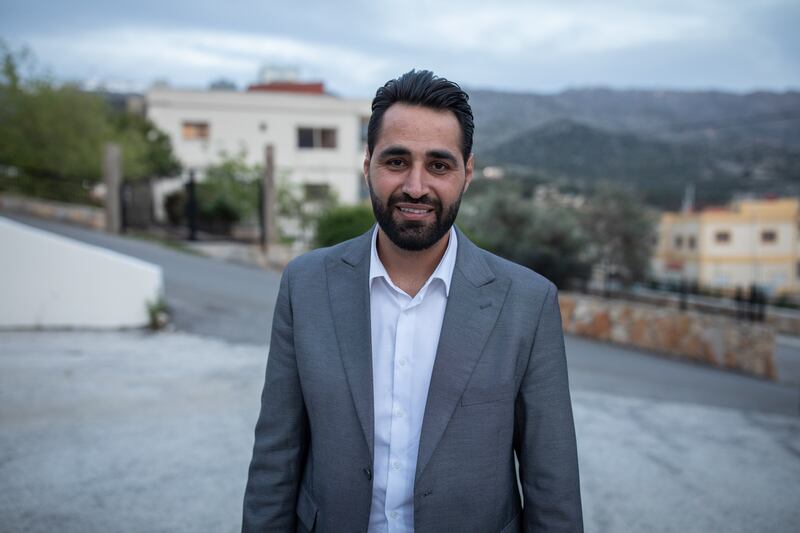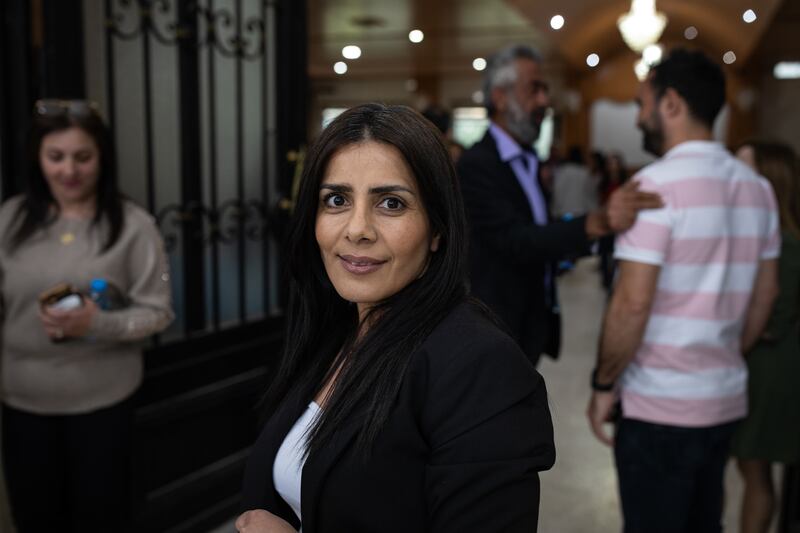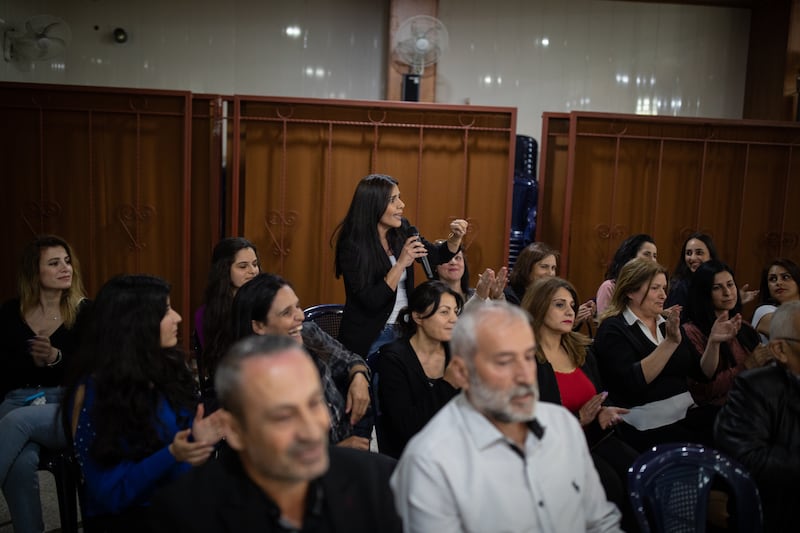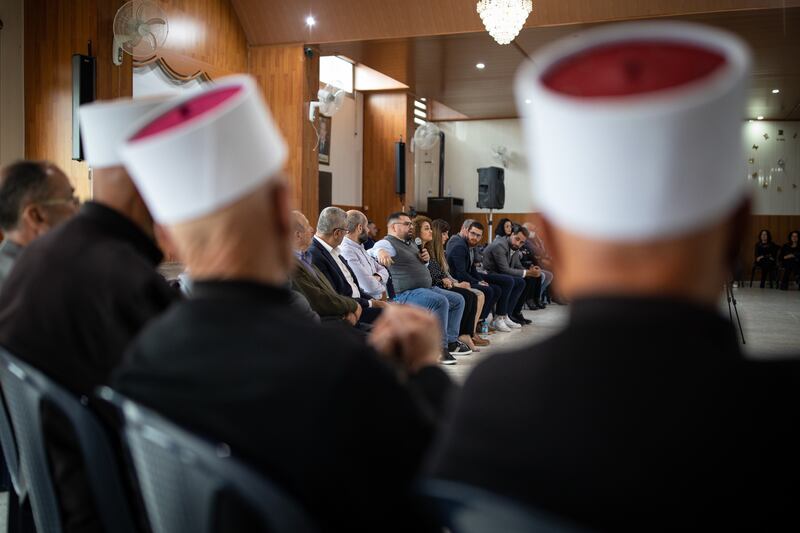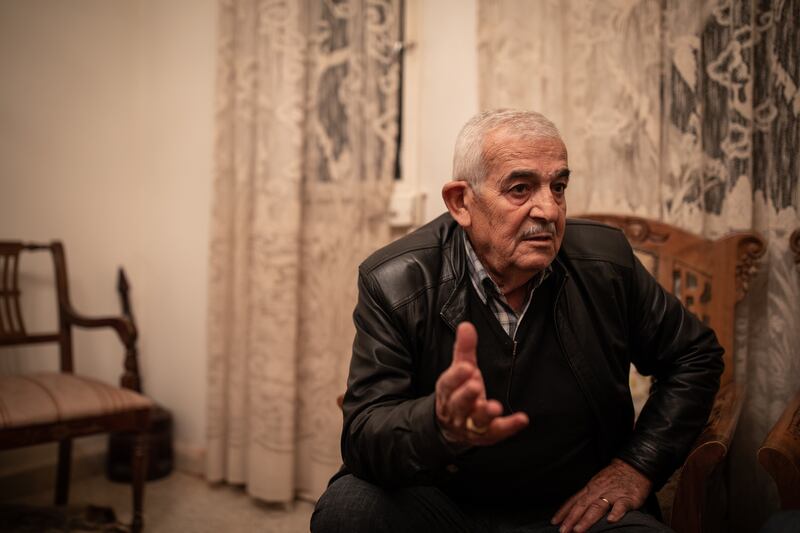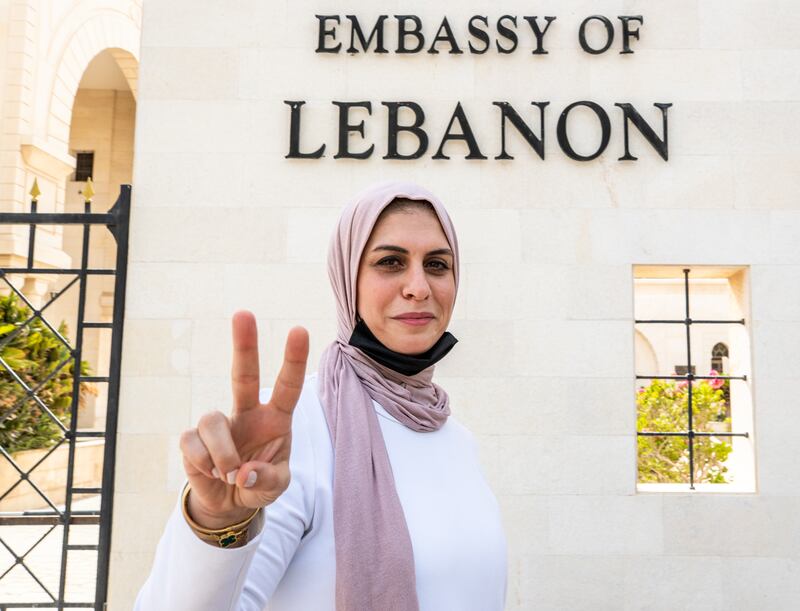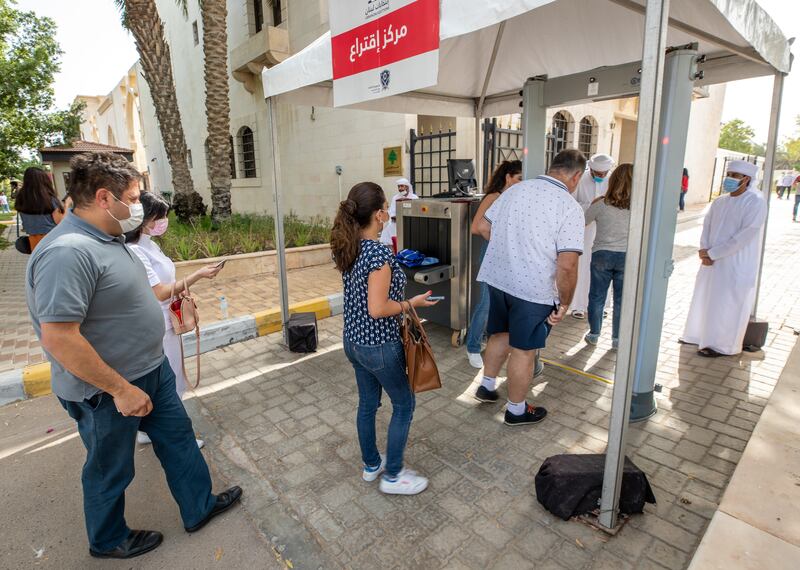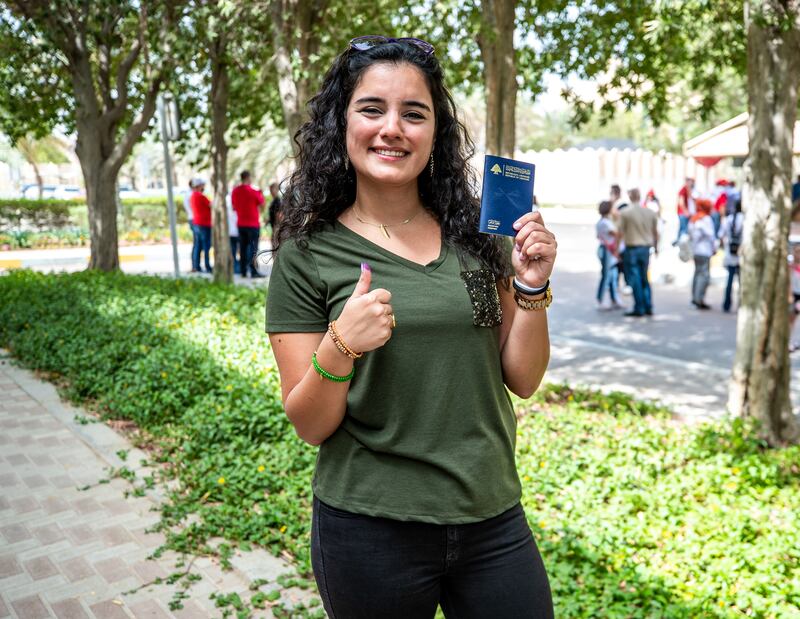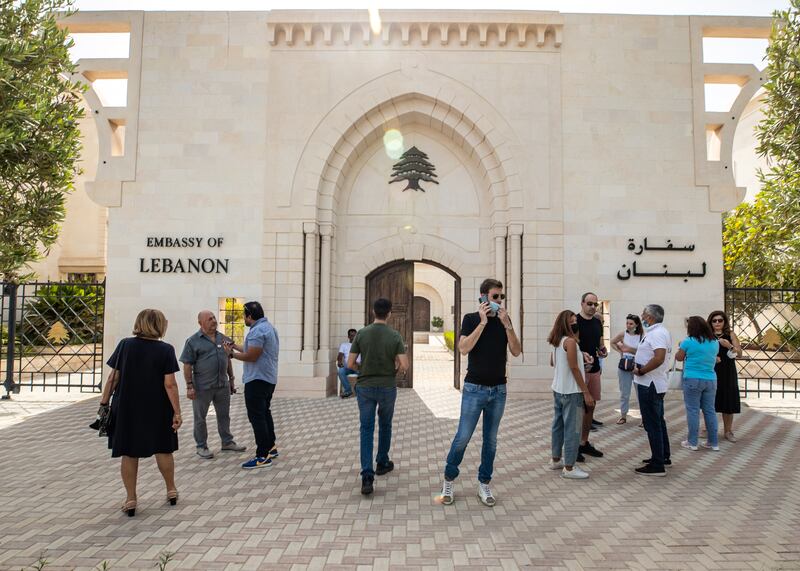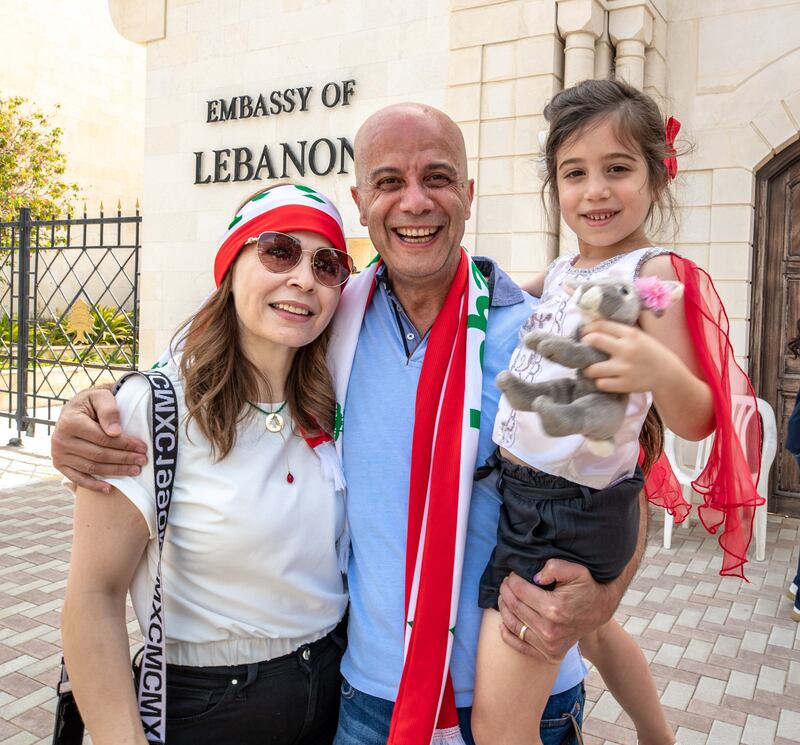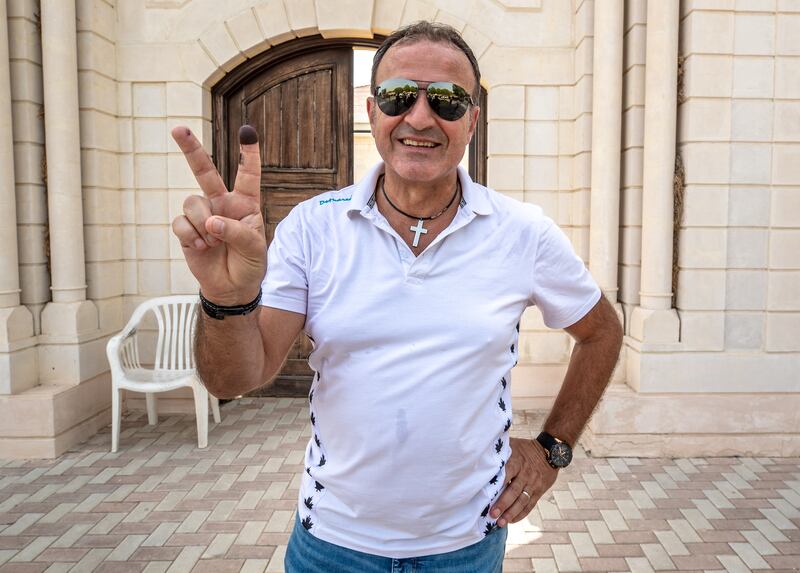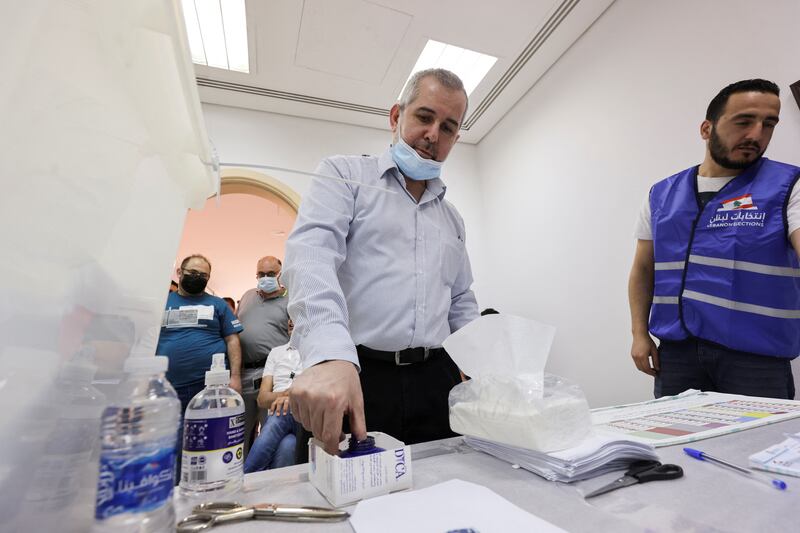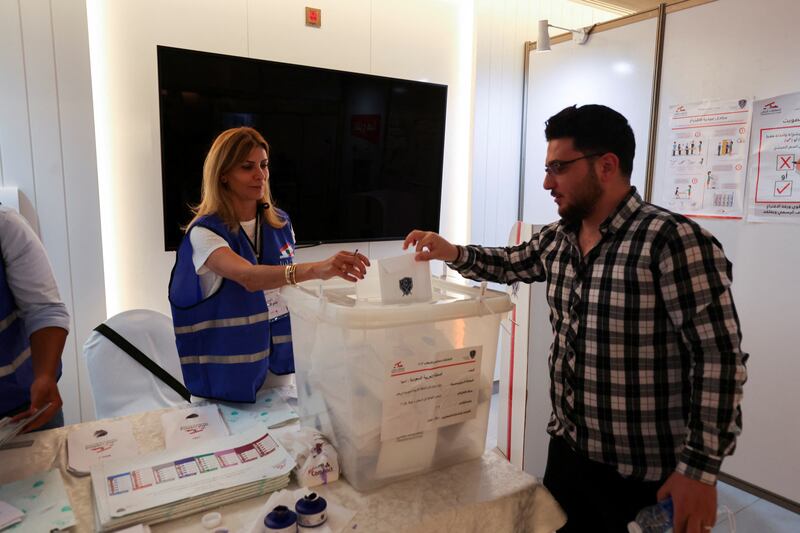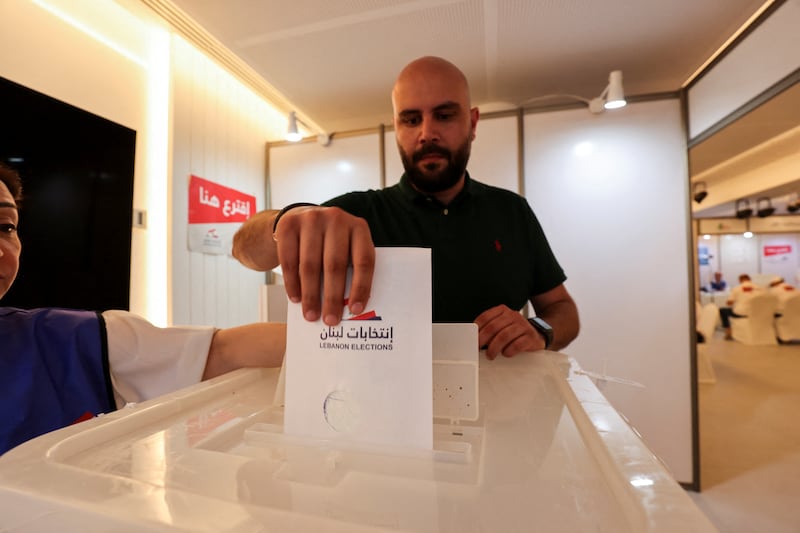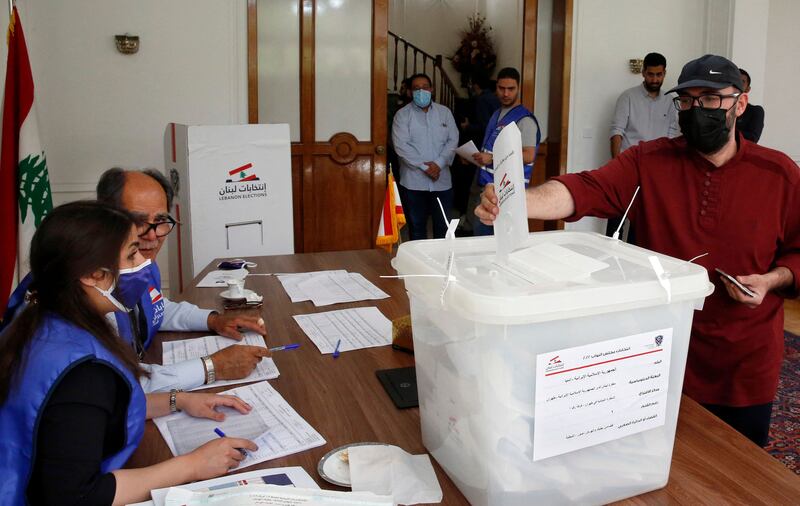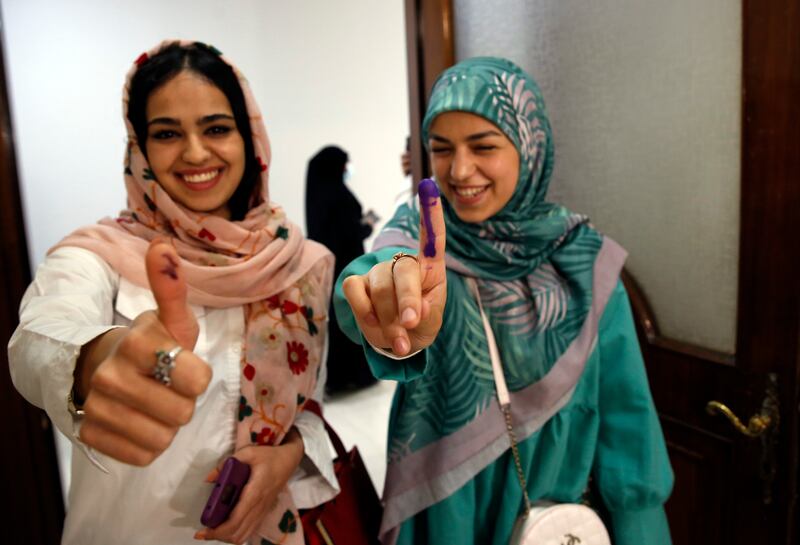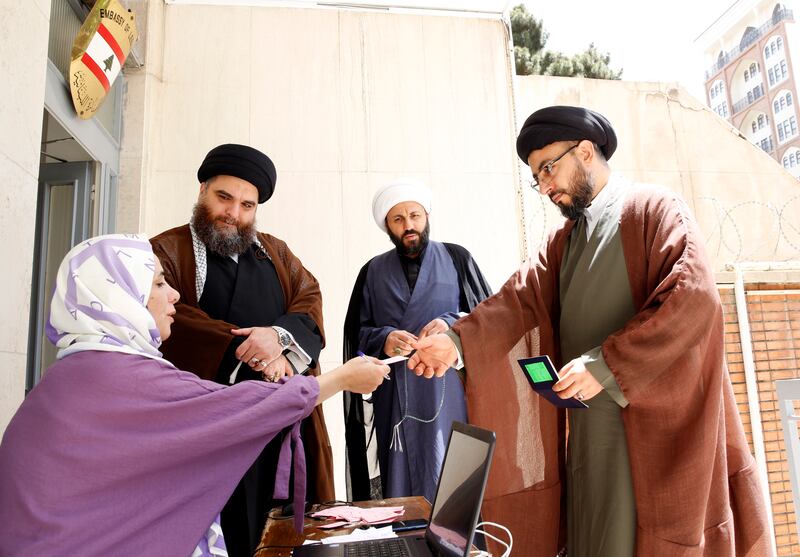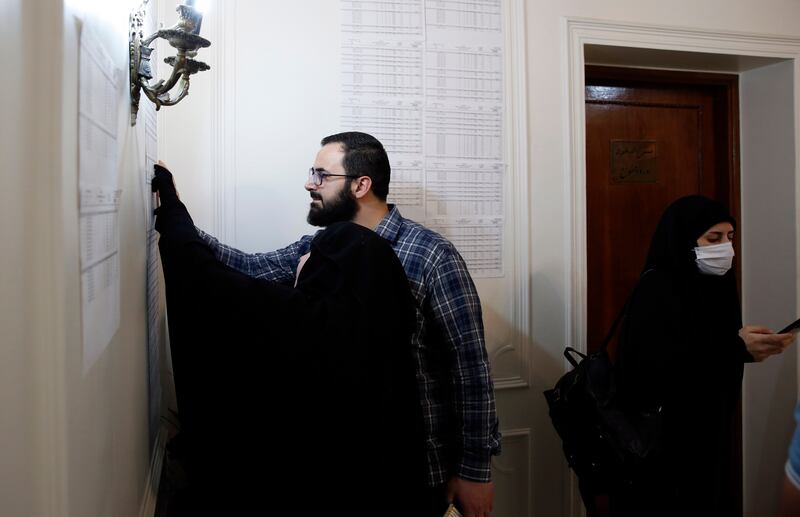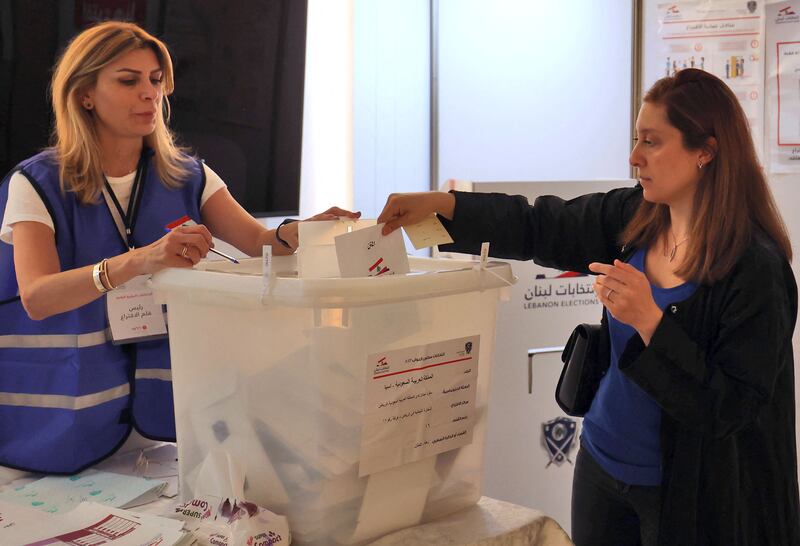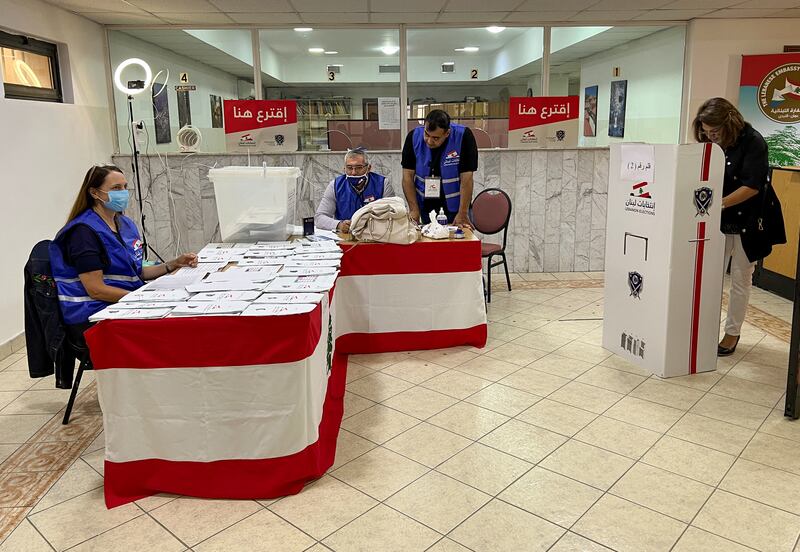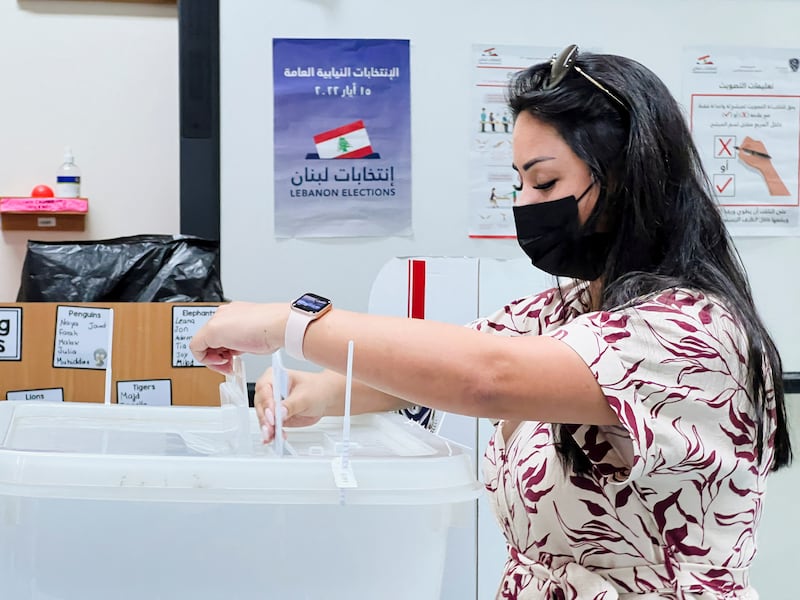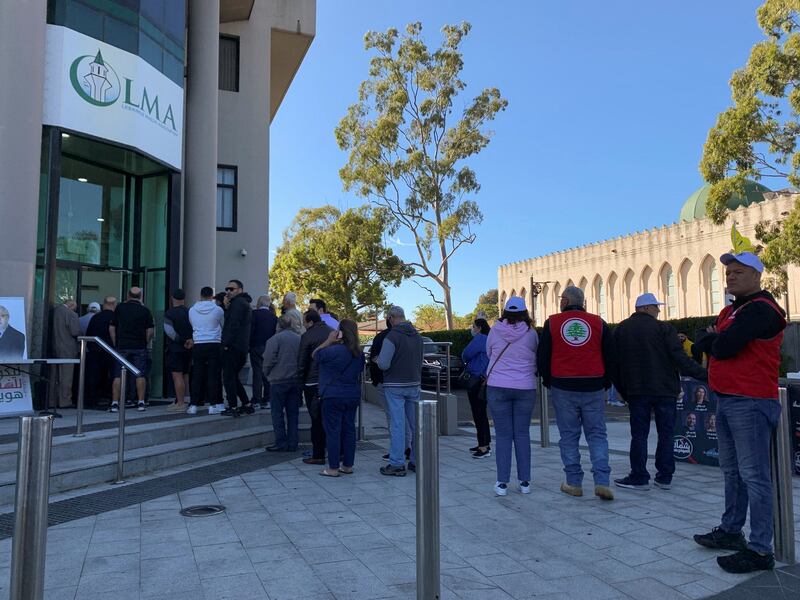Lebanon's 3.7 million registered voters will head to the polls on Sunday to cast a ballot for the 128 members of parliament to represent the country for the next four years.
Given the dire economic crisis facing the country, the vote could be decisive in determining the future of the country.
But much like its political patchwork, Lebanon has a complex voting law and polling day can be confusing.
So, here is everything you need to know before the polls open on Sunday to make sure your vote counts.
Who can vote?
New candidates enter turbulent world of Lebanese politics
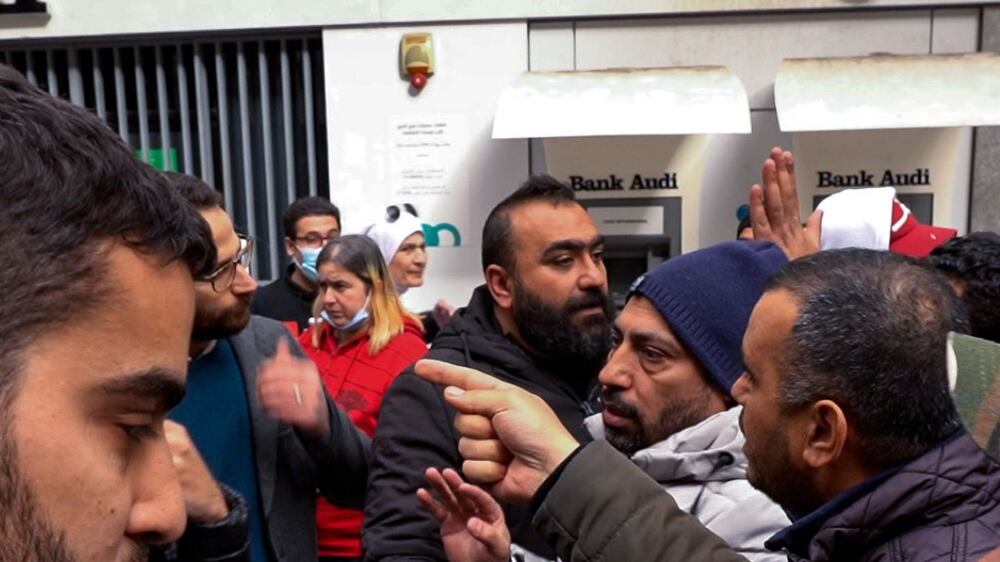
The country’s 2017 electoral law stipulates that all Lebanese men and women can vote, except for military and security personnel, people convicted of a felony, those stripped of their civil rights, or declared bankrupt, among others.
Naturalised Lebanese citizens can vote 10 years after their citizenship begins. This does not apply to non-Lebanese women who obtained citizenship through marriage to Lebanese men. But it does apply to non-Lebanese men married to Lebanese women.
Voters are enrolled automatically in their registered place of origin and the list is available for public inspection at government offices including municipalities.
When do polls open and where can I vote?
Polling stations open at 7am on Sunday and close at 7pm across Lebanon.
However, polling may extend in individual centres if there are long queues still waiting inside to cast a ballot, said Cendrella Azar, media and communication co-ordinator at the Lebanese Association for Democratic Elections (LADE). But new arrivals will be turned away after 7pm.
So where do you vote?
Lebanon is divided into 15 electoral districts and under the 2017 law, there must be a polling station for every 600 voters at most.
Voters must go to their registered polling station, which they can find on the government website here.
Is there early or postal voting?
Voting in Lebanon must be done in person on the day, no postal or proxy voting is allowed.
However, there is an earlier round of voting on Thursday, but this is open only to those working to run the election on Sunday.
Lebanese living abroad voted on either Friday, May 6 or Sunday, May 8.
How are polling stations organised?
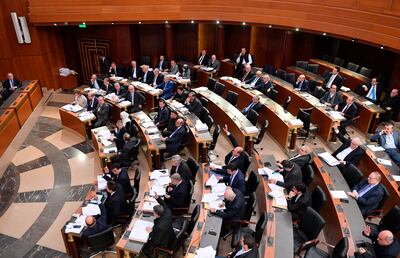
Polling stations are to be run by a head officer accompanied by one or several clerks, all appointed by the governor or district commissioner.
They are usually teachers and school principals and are paid for their work, said Ms Azar.
The law indicates that the head officer will choose one assistant among the voters present when the polling station opens. The voters there will choose a second assistant among those present.
The head officer has the exclusive authority to maintain order in the polling station and can ask security forces to enter temporarily if needed.
Political parties running in the district have the right to appoint a representative to monitor the voting process. These representatives can wear clothes identifying their party but are not allowed to influence for whom voters opt, said Ms Azar.
“They can interfere only if they see a violation,” she said.
The electoral law stipulates that “loudspeakers, loud music, party flags and motorcades” are prohibited near polling centres, as is campaigning.
Ballots, casting votes and what to do on election day
Lebanese voters in UAE cast ballots, days before their country’s parliamentary election
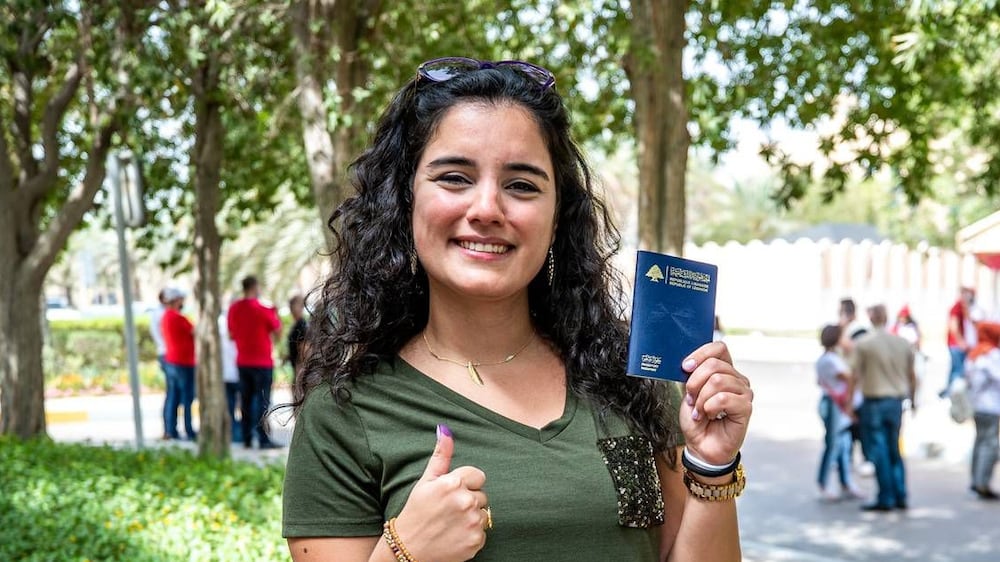
When voters arrive at their registered polling centre they will queue to enter the room with the ballot boxes. Sometimes men and women will be asked to queue separately.
Voters must hand over their identity card or valid Lebanese passport to be registered. President Michel Aoun on Thursday allowed the use of an expired passport, provided its owner pay 200,000 Lebanese pounds ($7). These can be used only on election day.
If the identity card has no photo, voters must also have their civil registry extract ("ikhraj keid" in Arabic), so that the head officer can verify the person's identity. In this case, people will not be allowed to vote unless they have both the ID and the civil registry extract.
The polling station officers verify that the name is on the voter list before handing over a printed ballot paper and envelope stamped with an official seal.
The voter steps into a polling booth where they vote in secret before placing it in the envelope, exiting and “then they enter the envelope themselves inside the ballot box”, said Ms Azar.
The voter then signs their name on the checklist, dips their finger in indelible ink and leaves.
Voting is over.
What is on the ballot paper?
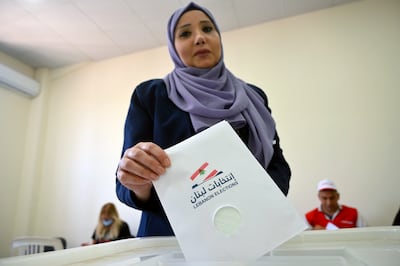
The ballot paper will be broken down by electoral list and under each list will be the names of the candidates running, the sect and the candidate's photo.
The voter selects their choice of electoral list and then they get to select a person from that list to whom they want to give their preferential vote.
They do this by placing a tick or cross in the box next to the list's name. They then select a name from the list they chose and place a tick or cross in the box next to their name to cast the preferential vote.
The preferential vote is optional and a voter can simply vote for one list, without also selecting the name of a candidate. If a voter selects a candidate from a list other than the one they chose for their vote, then this preferential vote will be discounted but the vote for the list remains, says LADE.
Spoiled ballots - what invalidates a vote?
According to LADE, a vote is considered invalid if the voter writes, draws or otherwise defaces the ballot paper, if they select two different lists or preferential candidates from two separate lists or if they try to post a non-official ballot paper in the envelope.
Common practices that do not invalidate votes include casting a preferential vote but not choosing a list – in this case, the vote will be counted for both the candidate and the list.
What are the sects on the ballot paper?
Parliament seats are divided among the country's sects to broadly represent the different communities. Each list will be made up of people from those sects aiming for a place in parliament.
Parliament seats are made up of:
- 34 Maronite Christian seats
- 27 Sunni Muslim seats
- 27 Shiite Muslim seats
- 14 Greek Orthodox seats
- Eight Druze seats
- Eight Greek Catholic seats
- Five Armenian Orthodox seats
- Two Alawite seats
- One Evangelical Christian seat
- One Armenian Catholic Seat
- One minorities seat to represent the other smaller sects
These seats are split between the 15 electoral districts to broadly represent the local make-up of the district.
What happens to ballot boxes and how are votes counted?
The head of the polling station and their assistants start counting votes manually inside polling stations as soon as they close at 7pm on Sunday evening, said Christophe Kairouz, senior researcher at LADE.
Party representatives, observers and the media are not allowed to participate in the count but may watch.
The law indicates that once counting is over, the head officer will announce preliminary results and immediately post a report at the entrance of the polling station and issue a copy to candidates upon demand.
“Counting can take all night or just a few hours. It depends on the size of the district and the knowledge of the polling staff,” said Ms Azar.
The head of the polling station then places all their report, the ballot papers and the checklist with the list of names of people who voted in a special envelope sealed with red wax.
This envelope is placed inside the transparent ballot box, said Mr Kairouz. This box is then transported under security escort to a primary registration committee located in the constituency.
The committee is composed of a president, who is a judge, as well as a member of the local municipal council and a member of the directorate general of personal status.
This committee will then count votes a second time, using “computer software that processes the count automatically”, the law reads. They will recount votes manually only if there are inconsistencies between the polling station count and the electronic count.
The committee’s report, ballot boxes and checklist are then sent to a higher registration committee. There is one per constituency. It is composed of a president, who is a higher ranking judge than in the primary registration committee. The judge is assisted by two other judges, an inspector from the central inspection board and a rapporteur chosen from the directorate general of personal status.
The higher registration committee's main task is to verify the reports it receives, collect votes and organise tables with the final results, which they send to the Interior Ministry. The ministry then declares the official final results.
"There are two counting stages to make sure that there is no fraud or difference in voter count,” said Mr Kairouz. “Candidates have 30 days to appeal after results are announced if they believe that votes are incorrect or invalid.”
Ballot papers are stored for three months at the central bank and then destroyed, unless they are subject to review or appeal before the constitutional council.
How do they calculate the results in Lebanon's election?
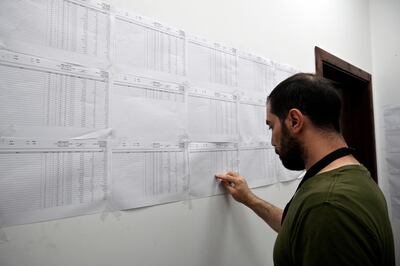
The formula for who has won is complicated and takes account of the ranking of the lists, the ranking of the candidates' preferential vote and the corresponding sect of the candidates to the seats available to win.
It is a proportional representation system and a list must secure a minimum number or be eliminated - this "electoral threshold" comes from the total votes cast divided by the seats allocated to the district.
For example, the South 2 district has seven seats and an eligible electorate of about 140,000 voters. If all 140,000 eligible voters cast a ballot, then each list would need at least 20,000 votes to be eligible for a seat.
But a list does not need to obtain twice the electoral threshold to then secure a second seat in Parliament, said political analyst Karim Bitar.
Following the example of South 2, “a list can obtain two seats with 25,000 votes as long as other lists scored less votes”, he told The National.
Once the list votes are counted and ranked from most popular to least, the candidates’ preferential votes are tallied. They are then able to create a list of the most popular candidates from across the winning lists in order of most to least votes.
The seats are then assigned from the top of this new list of winning candidates.
The seat will go to the highest-scoring member of the corresponding sect.
For example, if the two leading candidates were Sunni Muslim and the third place was Maronite but there was only one Sunni and one Maronite seat available, then the winners would be candidates one and three and candidate two would not be elected, even though they scored more preferential votes than candidate three.
When are results announced?
The Interior Ministry makes an official announcement one or two days after election day, depending on how long it takes to count all the votes from all the districts, said Ms Azar.
"We start to know the results late Sunday night because that is when parties start to celebrate and announce victory,” she said.
This is legal because the period of electoral silence where people can discuss the outcomes or campaign ends at 7pm on Sunday.
